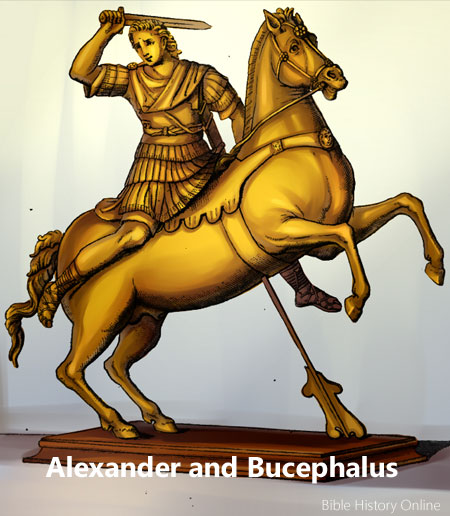37. Neither . . . regard . . . the desire of women--(Compare
Eze 24:16, 18).
The wife, as the desire of man's eyes, is the symbol of the
tenderest relations
(2Sa 1:26).
Antiochus would set at naught even their entreaties that he should
cease from his attack on Jehovah's worship [POLANUS]. MAURER refers it to
Antiochus' attack on the temple of the Syrian Venus, worshipped by
women
(1 Maccabees 6:1, &c.; 2 Maccabees 1:13).
NEWTON refers it to Rome's "forbidding to marry."
ELLIOTT rightly makes the antitypical reference be
to Messiah. Jewish women desired to be mothers with a view to
Him, the promised seed of the woman
(Ge 30:23;
Lu 1:25, 28).
nor regard any god--
(2Th 2:4).
JFB.

Painting of Alexander the Great and his horse Bucephalus
Daniel Resources
The Divided Kingdom
The
Northern Kingdom of Israel
The
Southern Kingdom of Judah
The Assyrian Captivity
The Babylonian Captivity
The Return From Babylon
The Prophets
The Messiah